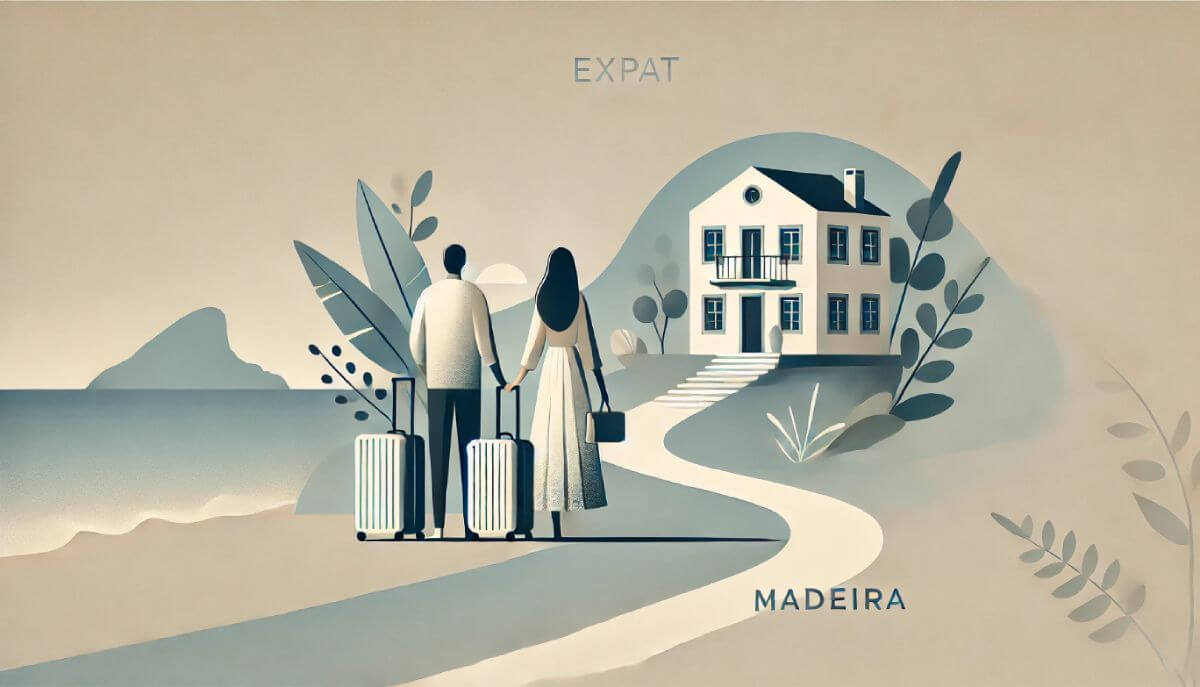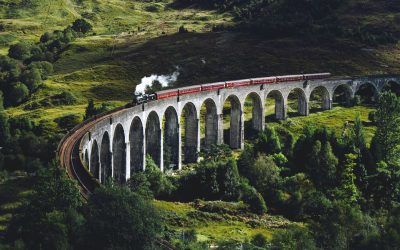Madeira Island has become increasingly popular among expats and digital nomads seeking a unique lifestyle change. Its stunning landscapes, mild climate, and rich culture make many wonder: is Madeira an excellent place to live? This question has gained significance as more people explore opportunities for remote work and international relocation.
This article aims to explore the pros and cons of living in Madeira. It will delve into various aspects of life on the island, including housing options, the digital nomad community, outdoor activities, healthcare, cost of living, and cultural integration challenges. By examining these factors, readers will gain valuable insights to help them decide if Madeira aligns with their lifestyle goals and expectations.
Madeira’s Diverse Housing Options
Madeira Island offers various housing options to suit multiple preferences and lifestyles. The island has something for everyone, from vibrant urban centres to tranquil rural settings. This diversity in housing impacts decision-making for those considering Madeira as a place to live.
Madeira’s Urban Apartments
The capital city of Funchal is the most developed and expensive area on the island. It is the centre of economic and political activity, offering luxury properties, fine dining, and five-star hotels. In 2024, the average asking price for an apartment in Funchal reached €2,920/m2, reflecting its high demand and comprehensive amenities.
For those seeking a balance between urban conveniences and a more relaxed atmosphere, areas like Santa Cruz and Câmara de Lobos present attractive options. These locations offer a mix of traditional charm and modern amenities, making them appealing for both residential purposes and investment opportunities. Câmara de Lobos, a picturesque fishing village near Funchal, has gained popularity among expats for its laid-back atmosphere.
Madeira’s Rural Villas
Madeira boasts numerous charming towns and villages outside the urban centres that provide a more tranquil living experience. Calheta, located on the island’s southwest, has become a favourite among those looking for a quieter lifestyle. Known for its beautiful beaches and relaxed atmosphere, Calheta offers affordable real estate prices and a robust rental market. The area features a large bay that provides stunning views from many apartments.
Ponta do Sol, aptly named “sun point,” is another popular choice for those seeking a rural setting. This area enjoys sunshine year-round and has some of the best beaches in Madeira. It has become a digital nomad favourite, and co-working spaces are emerging in the area. The traditional houses in Ponta do Sol are characterised by whitewashed walls, tile decorations, and red roofs, which add to its charm.
Madeira’s Real Estate Market
The real estate market in Madeira has been experiencing significant growth. From November 2023 to January 2024, several municipalities saw notable price increases. Funchal led with an average cost of €3,228 per square meter, showing a 2.22% quarterly increase and a 20.1% annual increase. Calheta followed closely at €3,027 per square meter, with a remarkable 21.7% yearly growth rate.
Housing costs in Madeira are generally moderate compared to mainland Portugal. Renting an apartment in Madeira is more affordable than in Lisbon, with an average price of €9.2/m2 compared to Lisbon’s €12.6/m2. A spacious 90m2 apartment can be rented for less than €850 per month.
The island offers a range of property types, from modern apartments to traditional Madeiran houses. This diversity caters to a broad spectrum of investors and homebuyers, each area offering unique advantages and investment potential. However, it’s worth noting that prices are rising across the island, reflecting its increasing popularity among both locals and expatriates.
Madeira’s Thriving Digital Nomad Community
Madeira Island has emerged as a sought-after destination for digital nomads, offering a unique blend of natural beauty, modern infrastructure, and a welcoming community. The island’s commitment to fostering a thriving digital nomad ecosystem has resulted in the development of various initiatives and facilities that cater to the needs of remote workers.
Madeira’s Co-working Spaces
The island boasts co-working spaces catering to digital nomads’ diverse needs. These spaces provide essential amenities such as high-speed internet, ergonomic workstations, and a professional environment conducive to productivity.
Cowork Funchal is a popular choice among remote workers. Located in the heart of Funchal, it offers a vibrant atmosphere and serves as a hub for the digital nomad community. The space is known for its friendly staff and welcoming environment, making it easy for newcomers to integrate into the local community.
Another notable option is Sangha Cowork, situated in the picturesque São Martinho area of Funchal; this space benefits from its proximity to beautiful beaches and excellent restaurants, perfectly balancing work and leisure.
For those seeking a more unique experience, Cabeço Alto offers a co-working space on a sheep and cattle farm, about an hour and a half drive from Funchal. This option caters to digital nomads who prefer a serene, nature-immersed work environment.
Madeira’s Digital Nomad Village
The Digital Nomad Village in Ponta do Sol has become a cornerstone of Madeira’s digital nomad community. This initiative, launched in February 2021, provides a free working space, events, and access to a vibrant community of like-minded individuals.
The village’s working space is located at the John do Passos Cultural Center. It offers amenities such as free internet, desks, chairs, and desktops. Open from 9 AM to 6 PM, it has welcomed over 300 digital nomads since its inception.
The Digital Nomad Village has created a comprehensive infrastructure to support remote workers. This includes partnerships with local businesses, hotels, restaurants, and service providers to ensure digital nomads access all necessary resources and accommodations.
Madeira’s Networking Opportunities
Madeira’s digital nomad community thrives on its numerous networking opportunities. The island hosts regular events, workshops, and social gatherings, facilitating connections among remote workers and locals.
The Digital Nomads Madeira Islands project has established various communication channels, including Slack and WhatsApp groups, to keep the community informed about local activities and events. These platforms serve as virtual meeting points for digital nomads to connect and share meetup experiences.
Weekly events such as lunches, cocktail parties, and fitness sessions provide ample opportunities for social interaction. Additionally, the company organises diverse activities ranging from dance lessons and coding workshops to mastermind sessions, catering to various interests and professional needs.
The emphasis on community building extends beyond work-related activities. Madeira Friends, a non-profit organisation, hosts regular events and workshops in Funchal, further enriching the social fabric of the digital nomad community.
This thriving ecosystem benefits digital nomads contributes to the local economy and fosters cultural exchange. Integrating remote workers with the local community has led to knowledge sharing, new business initiatives, and volunteer projects, creating a mutually beneficial environment for all involved.
Madeira’s Outdoor Adventure Opportunities
Madeira Island has become a haven for adventure enthusiasts, offering a diverse range of outdoor activities catering to all experience levels. Madeira provides abundant opportunities for those seeking to explore its natural wonders, from hiking trails that traverse breathtaking landscapes to exhilarating water sports and serene nature reserves.
Madeira’s Hiking Trails
The island boasts an impressive network of approximately 2,000 kilometres of trails, many of which follow the famous levadas – irrigation channels that wind through the island’s lush terrain. These trails offer hikers a unique opportunity to explore Madeira’s diverse landscapes, from coastal cliffs to misty forests and rugged mountain peaks.
One of the most renowned hiking routes is the Vereda do Arieiro (PR 1), which connects Pico do Arieiro to Pico Ruivo. This challenging trail is considered the most beautiful on the island, offering panoramic views of jagged peaks and requiring an entire day. For those seeking a less strenuous option, the Levada do 25 Fontes (PR 6) is popular, featuring multiple waterfalls along its route.
The Vereda da Ponta de São Lourenço (PR 8) offers a unique hiking experience on the island’s easternmost peninsula. This trail showcases Madeira’s diverse terrain, with its dry, rugged landscape and spectacular sea cliffs starkly contrasting the island’s lush interior.
To enhance the hiking experience, visitors can utilize the WalkMe phone app, which offers navigation, offline maps, and information on more than 50 hikes for a nominal fee of 5 Euros.
Madeira’s Water Sports
Madeira’s crystal-clear waters and diverse marine life make it an ideal destination for water sports enthusiasts. The island offers a wide array of activities that cater to various interests and skill levels.
Scuba diving has gained popularity in Madeira, recognised as an outstanding destination. Divers can explore shipwrecks, encounter manta rays, and spot dolphins or whales in the surrounding waters. The excellent visibility, often up to 20 meters, enhances the underwater experience.
Coasteering has emerged as an exciting activity for those who prefer to stay closer to the surface. This unique adventure combines walking along the coastline in wetsuits and helmets, jumping into the ocean, and snorkelling in crystal-clear waters.
Surfing enthusiasts will find Madeira’s waves comparable to Hawaii’s, earning it the nickname “Hawaii of the Atlantic.” The island’s varied coastline offers suitable conditions for surfers of all levels.
Madeira’s Nature Reserves
Madeira’s commitment to preserving its natural beauty is evident in its numerous nature reserves, which allow visitors to immerse themselves in the island’s unique ecosystems.
The Parque Florestal das Queimadas, located near Santana, is one of Madeira’s green lungs. This forest park allows visitors to explore the island’s rich and luxuriant nature, making it a must-visit destination for nature lovers and families.
Another notable natural attraction is the Laurissilva Forest, a UNESCO World Natural Heritage site. This primaeval forest is the only one of its kind in Portugal and can be explored through various levada walks. It offers visitors a glimpse into Madeira’s ancient ecosystem.
For those seeking a unique natural experience, the Ribeiro Frio Natural Park allows them to observe trout in their natural habitat and enjoy scenic walks along nature trails. This deep valley, surrounded by mountains, showcases the island’s diverse flora and fauna.
Madeira’s Healthcare System
Madeira’s healthcare system offers a comprehensive and accessible approach to medical care, catering to both residents and expatriates. The island’s healthcare infrastructure is built on a robust foundation that combines public and private options, ensuring quality medical services for all.
Madeira’s Public Healthcare
The backbone of Madeira’s healthcare system is the Madeira Regional Healthcare System (SESARAM), managed by the Regional Department of Health and Civil Protection. SESARAM serves as a lifeline for residents and expatriates, extending its coverage to the Autonomous Region of Madeira, the Azores, and the Portuguese Mainland. This extensive network allows SESARAM beneficiaries to access care in these areas when necessary, particularly specialised treatments.
Like in Portugal, public healthcare in Madeira is part of the National Health Service. This system offers quality medical services at subsidised rates, with the amount paid for services depending on the individual’s economic situation. Many services are free for those in financial need, making healthcare accessible to all population segments.
The island boasts three major public hospitals:
- Dr. Nélio Mendonça Hospital: Madeira’s primary hospital, located near Funchal, offers round-the-clock emergency care, external consultations, internments, and surgeries.
- Marmeleiros Hospital: Situated in Funchal’s Monte parish, designated for more hospitalisation needs.
- Dr João de Almada Hospitspecialisescialises in geriatric and palliative care in the Monte parish.
In addition to these hospitals, numerous health centres (centros de saúde) are spread across Madeira and Porto Santo, with nearly every civil parish having one. These centres handle non-emergency situations, such as routine consultations, nursing care, and family planning. They are crucial in administering the Regional Vaccination Program, particularly important for families with children.
Madeira’s Private Healthcare Options
For those seeking more exclusivity and potentially shorter waiting times, Madeira offers an array of private healthcare facilities. These establishments provide top-notch services, modern amenities, and well-trained medical professionals.
Notable private healthcare providers in Madeira include:
- Hospital Particular da Madeira: A private hospital in Funchal that offers 24/7 emergency services, external consultations, internments, and surgeries.
- Madeira Medical Center: A private health clinic located in downtown Funchal.
- Hospital da Luz: Another private health clinic in Funchal.
Many residents and expats opt for voluntary private health insurance to complement their healthcare coverage. This offers peace of mind and additional services, providing faster access to specialists and private healthcare facilities.
Madeira’s Medical Facilities
Madeira’s healthcare infrastructure is well-equipped to handle various medical needs. Pharmacies are abundant across the island, with well-stocked establishments in most neighbourhoods. Many pharmacies offer 24-hour services, ensuring round-the-clock medication access and pharmaceutical advice.
In case of emergencies, Madeira is well-prepared and has responsive services. The emergency number in Portugal, including Madeira, is 112. This toll-free number connects to ambulance police and fire services, with operators able to respond in several languages, including English.
Madeira’s Cost-Effective Lifestyle
Madeira Island offers a unique blend of affordability and quality of life, making it an attractive destination for expats and digital nomads. The island’s cost-effective lifestyle combines reasonable living expenses with significant tax advantages while providing a high standard of living.
Madeira’s Affordable Living Expenses
Compared to Western Europe and North America, Madeira boasts a lower cost of living. With an average monthly budget of €1200 for living expenses, it’s affordable for expats and foreigners. The island’s temperate climate eliminates the need for heating, resulting in substantial savings. Additionally, air conditioning is optional during summer, reducing utility costs.
Food expenses in Madeira are particularly appealing. Local restaurants offer meals for as little as €5-10, while a pint of beer can be enjoyed for around €2. The island’s fresh produce is of exceptional quality, with fruits and vegetables surpassing those in mainland Europe in taste and affordability. Grocery expenses are comparable to mainland Portugal, offering good value for money.
While housing costs have increased since the pandemic, they remain competitive compared to other popular European destinations. Short-term rentals are more expensive, but long-term stays offer better value. Couples or groups sharing accommodations can often find more cost-effective options.
Madeira’s Tax Advantages
Madeira’s tax system offers significant benefits for both individuals and businesses. The Madeira International Business Center (MIBC) provides attractive incentives for companies, including a reduced corporate tax rate of 5%, substantially lower than mainland Portugal’s 21%. This makes Madeira one of the most tax-friendly regions in Portugal for business and investment.
For individuals, Portugal’s Non-Habitual Resident (NHR) status can provide tax exemptions or flat tax rates on certain types of income. However, consulting with local tax experts is crucial to fully understand these benefits while ensuring compliance with all legal requirements.
Madeira’s Quality of Life
Beyond financial considerations, Madeira offers an exceptional quality of life. The island’s natural beauty and relaxed pace of life create an environment conducive to well-being. Similar to their mainland counterparts, Madeirans share an intrinsic love of life, focusing on enjoying good food, nature, and simple pleasures.
Madeira’s safety is another significant factor contributing to its high quality of life. As part of Portugal, ranked as the sixth safest country globally, Madeira experiences low crime rates, providing peace of mind for residents and visitors alike.
The island’s small size means shorter commutes for work and leisure, eliminating the need for expensive long-distance travel. This, coupled with various affordable activities and sports availability, enhances the overall living experience without straining one’s budget.
Madeira’s Cultural Integration Challenges
While Madeira offers a captivating lifestyle, expats and newcomers may face challenges when integrating into the local culture. The primary language spoken on the island is Portuguese, which can present a significant hurdle for those who are not fluent. However, Madeira provides various resources and opportunities to help newcomers overcome these challenges and fully embrace the island’s rich culture.
Madeira’s Language Learning Resources
Madeira offers a variety of language learning options to address the language barrier. These include language schools, private tutors, and language exchange programs. These resources are valuable tools for expats looking to improve their Portuguese skills and better integrate into the local community. Many newcomers find that taking language classes, joining conversation groups, or using language learning apps can help them gain confidence in their new environment.
Madeira’s Cultural Adaptation Tips
Several strategies can be helpful for those looking to immerse themselves fully in Madeira’s culture. Learning about local customs and traditions, engaging with the local community, and being open to new experiences and perspectives are essential in cultural adaptation.
Joining local clubs, associations, and interest groups is an excellent way for newcomers to integrate into the community. Madeira offers a variety of clubs and groups catering to different interests, including sports clubs, cultural associations, and organisations. Participating in local events and activities helps in language acquisition and understanding and appreciating local customs and traditions.
Volunteering for organisations or charities can be a great way to meet new people and feel more connected to the community. Some options include the ARTE.M Cultural Association, which focuses on language, arts, community, and SPAD. This animal organisation offers volunteer opportunities for animals utilising these resources and adopting a proactive approach to cultural integration so ex-pats and newcomers can overcome initial challenges and fully embrace Madeira’s unique lifestyle.
Is Madeira a Good Place to Live: the Conclusion
Madeira Island offers a unique blend of natural beauty, modern amenities, and a welcoming community, making it an appealing destination for expats and digital nomads. The island’s diverse housing options, thriving digital nomad ecosystem, and abundant outdoor activities provide a high quality of life. Its cost-effective lifestyle and tax advantages add to its allure, while the comprehensive healthcare system ensures peace of mind for residents.
While cultural integration may pose initial challenges, particularly with language barriers, Madeira provides ample resources to help newcomers adapt and thrive. The island’s commitment to fostering a supportive environment for locals and expatriates creates a harmonious community. Ultimately, Madeira’s combination of natural wonders, modern conveniences, and warm hospitality makes it a compelling choice for those seeking a balanced and fulfilling lifestyle in a stunning island setting.
FAQs
1. Is Madeira a suitable destination for expatriates?
Madeira, an autonomous region of Portugal in the Atlantic Ocean, attracts expatriates with its breathtaking landscapes, favourable climate, and high quality of life. The area combines modern facilities with a friendly local culture, making it an appealing choice for many.
2. How is the quality of life in Madeira?
Madeira offers a high-quality lifestyle characterized by its rich cultural heritage, low crime rate, and peaceful surroundings. The island is known for its traditional festivals, unique cuisine, and vibrant artistic scene, all of which contribute to the cultural enrichment of its residents.
3. Can Americans retire in Madeira?
Madeira is a popular retirement destination for Americans, thanks to its mild climate throughout the year, beautiful scenery, and welcoming community atmosphere. The cost of living is relatively affordable, and the island boasts active expatriate communities and various recreational activities, making it ideal for a rewarding retirement.
4. Is English commonly spoken in Madeira?
While Portuguese is the primary language of Madeira, English is widely spoken and understood, particularly in areas frequented by tourists, such as hotels and restaurants. This is largely due to Madeira’s status as a popular tourist destination.
The information in this article is for general informational purposes only and is not intended to constitute legal advice. While every effort has been made to ensure the accuracy of the content, laws and legal procedures can change, and the specifics of each case can vary widely. Therefore, readers are advised to consult a qualified professional or attorney in Portugal for advice tailored to their circumstances before taking action. This article does not create an attorney-client relationship between the reader, the authors, or the publishers. The authors and publishers are not liable for any actions taken or not taken based on the content of this article concerning.
The founding of Madeira Corporate Services dates back to 1996. MCS started as a corporate service provider in the Madeira International Business Center and rapidly became a leading management company… Read more




